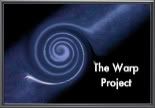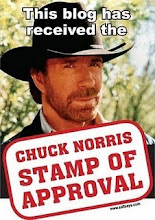In December 2005 one of my closest friends killed herself by jumping off the Golden Gate Bridge. She was 54 years old and had been struggling with debilitating depression for over a year. She'd been diagnosed with rapid cycling bipolar disorder and anxiety. Initially she was prescribed medication for the situation and the medication made a world of difference for her in terms of both how she felt and how productive she was able to be. She went back to school, made plans to study Chinese Medicine, and was even excelling at math, something she'd never had the patience to work on. Then the anxiety medication stopped working. It caused a swing so severe she could barely handle just sitting in the middle of a classroom where she didn't even anticipate being called on by the teacher. Doctors decided to just increase her anti-anxiety medication. Her anxiety remained but she started getting so lethargic that she could barely move.
When all this was happening she was living in Santa Cruz and I had moved to Flagstaff. I was in the middle of having returned to school myself, and was working on raising a 4-year old on my own so the idea of traveling to another state to see her didn't seem possible. She called me to talk through what was happening to her and I remember thinking that her tongue sounded incredibly heavy. It was like she could barely move it just to talk. In that phone call she told me her lethargy was so bad she was starting to stay with her then 85-year old parents so that she could just lay on the couch while they took care of her.
Doctors began playing with her prescriptions. They'd change medication and tell her to just see how the new one went. To give it two weeks and then expect improvement. I'd talk to her and for a day she'd seem better. Then she'd crash again and things would get worse. Then doctors would change her prescription and the cycle would start again. The truth was, she didn't have health insurance and so she was never being seen by any one doctor. She'd have to walk into an urgent care clinic when things were bad enough and then reiterate by memory whatever she'd been taking and the new doctor would just prescribe her something else to try and then never see her again.
Over this same period of time she also became slowly more and more isolated from her friends. Because of the medication and mood changes her behavior would be erratic and people stopped wanting to be around her. She also went to her parents because it seemed they were the last people that would reliably be there, even if just while she lay on the couch.
After struggling in this kind of way, heavy tongued, without enough financial support, and slowly losing her social connections, my friend called me in August 2005 and asked how I was doing. I was on my way to start a graduate program in Montreal. She was staying on her parents couch and had just turned 54. One of the last things she said to me was that I was just at the start of my life (I'd turned 30), and she was at the end of hers. I didn't realize how thoroughly she'd meant that statement. We talked a while more and then when we said goodbye I heard her start crying and hang up the phone. Over the next four months I was busy with graduate school and raising a 5-year old girl on my own, and she stopped answering my phone calls. In early December she was dead.
Earlier this week a man waded into the San Francisco Bay and stood there in water almost up to his nose while around 75 people, including police and fire fighter 'rescue' crews, watched from the banks. News articles report that the man stayed in the water this way for over an hour and looked back at the on lookers several times. He slowly deepened his stance in the water, repeatedly looked back, and those on shore just kept watching. Finally, the voyeurs report that his body began floating. He'd drowned.
The articles report that so-called rescue crews did nothing because they were "hand cuffed by policy." Strangely, articles do not bother to state what these policies are. They do, however, explain that budget cuts had prevented any of those police or fire crews present from being trained on how to do water rescue. Based on this I am willing to charitably assume that the policy indicated must be something that keeps city workers from performing rescues they have not been trained to perform. None of the other 75 on-lookers, apparently, attempted any sense of rescue either. The horrible truth of the rest of this story, however, is that AFTER the man had died a volunteer (that is, not a policeman or fire fighter) waded into the water after the man's body and brought it ashore.
Let me be completely honest that the death of my friend is something that will never simply heal. It's been almost six years now and I have done, what I take, to be a kind of healing process around the grief so that the most immediate worst of it, so to speak, has been healed. Even so, her death means the loss of a real person's life, a life that made enormous difference to those that loved her, including me, even when towards the end some of that difference included painful challenge. The fact that she died by what we're inclined to call a personal choice makes the loss of her all the more painful--it highlights the pain and futility she must have felt. But it also highlights the failure of the people in her life to be able to help her adequately, and the failure of any of the medications or doctors that prescribed them to make a difference. The truth is, in a more ideal situation, she would have been seen regularly by ONE doctor that would have tracked her progress, her responses to various medical interventions, and tried, with her, to problem solve her situation. But, the medical community was handcuffed by money. She had no medical insurance.
Having said that, I will now say that the news of the man that drowned this week in San Francisco Bay deeply angers me. It is not only an anger that echos the pain of the loss of my friend, though I am sure that is there too. It is an anger over how this article reveals public attitudes about money versus life, policy versus life, and how it also reveals what I take to be a horrible misunderstanding in how personal choice factors into an action like killing yourself. Let me further state, that when I say "it angers me", what I actually mean is that in imagining my way into this story I feel immeasurable grief over the loss of this life, even if I must admit it is a life I did not apparently know.
News articles I have read in this man's death state that the so-called rescue crews did the right thing by not intervening in this man's suicide, even as they stood and watched it happen. The primary claim is that money (via budget cuts) and policy overrode their ability to intervene, and that because of this they were right to watch the man die. IF what is actually more deeply true here is that the 'rescue' crews were under trained and so unable to safely (within reasonable expectations--after all any rescue attempt simply isn't completely safe) attempt to rescue the man without seriously threatening their own lives, then I am sympathetic more or less to what a bad situation the crews were in. This has NOT actually been stated in the articles I've read, however. Let me point out too that the state of the water WAS apparently safe enough for a volunteer (that is someone NOT on the rescue crews and so obviously not adequately trained in the midst of budget cuts either) to wade in after the man's dead body once he'd finally drowned. This implies the water would have been safe enough for someone to at least go into the water, and indeed the man himself lived safely standing in the water for at least an hour BEFORE he drowned. I realize that things become more complicated if you're afraid that the person attempting suicide will fight you off in the water. But the articles imply no one actually faced this possibility--that is, no one entered the water after him.
When interviewed about the situation, an Alameda Police Lieutenant stated that his men had done the right thing. He explained that the situation was difficult because, as just discussed, his men didn't know if the suicide-victim would try to fight to preserve his own ability to die. He then also stated that his men were in the right because the man was in a deliberate attempt to take his own life. In this way the occurrence was not a typical rescue situation.
San Fransisco is known for a history of passivity in regards to suicide. The Golden Gate Bridge, and as a result also San Francisco Bay, has been one of the biggest suicide magnets in the world since within a year of its completion, and is in fact now considered THE biggest. Though it was originally designed to have sidewalk barriers far surpassing the height of any individual human, the designers in the end decided that such barriers would impede the glorious view of the ocean on one side and the bay on the other. As a result the barriers stand at no more than four feet. For almost a century, there has been public discussion of whether to install suicide barriers BELOW the sidewalks. Such barriers would make it impossible for anyone to successfully jump from the bridge and thus commit suicide through the equivalent of a twenty-five story fall (746 ft; 227.4 m).
During public debate over the possible installation of a suicide barrier, and interviews of the public done by the local papers, or surveys done as a study of people's opinions, there has been a strong tendency to claim that a suicide barrier should NOT be installed because suicide is a free choice people make, and as a free choice the right to make it should be maintained. There has often then been a follow-up claim made that if a person doesn't commit suicide on the bridge they'll just do it in some other fashion instead.
The easier point to respond to is the final one. There have been suicide magnets all over the world and studies have shown two things--one, when someone jumps from a suicide magnet (like the Golden Gate) it is OFTEN the case that soon after someone else will also jump. That is, suicides off a suicide magnet spawn copycats, thus increasing the numbers of deaths. This is not true of someone committing suicide in their own home, as a counter example. Two, studies of suicide magnets around the world that have had a suicide barrier added have actually shown a HUGE DECREASE in suicides in the extended area AFTER the installation of the barrier. That is, it is precisely NOT the case that someone that doesn't jump from a suicide magnet will just kill themselves in some other way. Instead, it seems to be that death is just too easy and too guaranteed off of something like a bridge that rises 25-stories above the ground. Other forms of suicide are more messy, less guaranteed, and also less attractive.
Finally, I want to respond to the idea that suicide is a form of free choice. In doing so I want to say that I am a huge proponent of our American ideal of 'liberty.' I support the idea that our right to choose for ourselves what we shall do must be maintained. However, making such free choice depends on HAVING THE ABILITY to choose freely. Further, having such free choice does not actually remove us from ALL societal interventions or judgments in regards to the choices we want to make.
Experts have shown that such ability is dependent on having what we call competence. That is, an individual must be more or less mentally clear and stable, and not overly constrained through external influences and strains such as excessive social pressures, radical change in ones personal circumstances, untoward familial influence, or impactful physical impediment. That is, even people that are more or less competent can have experiences of extreme stress that cause a severe enough effect on their condition that we could say that they are not competent temporarily as a result of some recent occurrence. As an example, years ago during one of the stock market crashes of the 1980's, loads of stock brokers killed themselves by leaping from their own sky rise office windows. Most had likely been what we would consider thoroughly capable of making decisions for themselves right up until the stress of the stock market crash. In fact, it would seem that the successes they'd had up to that point in investing money, maintaining their jobs, and reaching that pinnacle of career position, would all indicate that they were more or less competent. Why? Because each of these things just listed are all complex decisions that must be made and followed through on by an individual--the ability to make complex decisions and follow through on them is precisely what competence means. Then, in facing the radical change in circumstances caused by the crash, plus the social pressures of the money they'd lost themselves and for others, plus who knows what else, we could argue they were no longer thinking clearly. In this kind of way whether they were competent, and thus making a truly free choice when they leapt from their windows is highly (excuse the pun) suspect.
Experts that discuss competence also emphasize that competence is actually relative to a circumstance. So, the more serious the potential consequences of a decision, the more thoroughly we want to ensure an individual's sense of competence as they make that decision. So, if the free choice you're making is whether to eat a chocolate chip or ginger cookie, it seems the consequences are fairly low, so even someone with a condition like schizophrenia, which might lower someone's overall competence, could still be seen as competent-enough to choose a cookie for themselves. However, a decision like driving across town safely in a car might be seen as having much higher potential consequences, and thus much higher demand for competence, than choosing the cookie. From this view, we see, then, that the highest demand for competence comes from a person deciding about life or death. The reason, obviously, is because the decision is absolute. There is no repair from death, like there might be from a poorly chosen ginger cookie.
With all this in mind, I think it is at least THEORETICALLY possible to make a competent decision to die intentionally, but that such cases are rare, and possibly so rare as to be almost impossible to find in actual life. When it comes to judging whether someone is competent, the demand is highest in cases of death for the reason already described--the decision is absolute. The truth is, judging competence is precisely when we see the limit of an individual's right to choose for themselves. Here we see the reality that our liberty is intertwined with society. We cannot always judge for ourselves whether we are making a competent decision. In the case of choosing death, if we are suffering under radical, sudden, or debilitating change, we might not be able to see clearly enough all there is to live for.
The man in the bay, unfortunately, is now lost absolutely. As is my dear friend that I will always miss. It is too late to rethink what we can do in the face of their despair. We can try harder to honor their pain, however, by questioning our public views of the value of money or policy over life, and of reconsidering if we value our liberty so thoroughly that we misunderstand when we genuinely have it. People on the verge of suicide must be questioned in regards to their competence. And as we stand, firm footed on the shore, seeing them standing amidst the waves, we must work harder to act before they are lost among them. Before they are lost in the absolute.














It's here too! OK...FB is being weird.
ReplyDeleteYou know me, it takes 3 or 4 days of reading these over and over before *I* feel competent to write something! I am overwhelmed by it at the moment.
The one thing I can comment on at this time is that horror of people standing by as he slowly succumbed to the water. When I taught first aid and CPR for the Red Cross, I always liked to emphasize the phenomena of "the more people around a terrible accident, the less likely they are to help/respond" It takes merely 6 people to be present to slow down the response to an emergency. Nearly every one of them is thinking, "someone else will help". It's alarming.
Even last night I watched a show where a man fell off the stage performing. And one of the judges, a woman, a mom, TURNED AROUND and wouldn't look! I know I shouldn't judge her but, it symbolizes I think how our society reacts. I have seen videos where people have WALKED BY OTHER PEOPLE DYING on the streets! Now I love animals but, it scares me that people come to the rescue of an animal before a person. We are so quick to judge. So quick to assume a person's demise is justified.
I'll stop there because I haven't formulated anything beyond that. But, I will return! So sorry for your loss too Elaine. Thank you for sharing that journey and where you are in it thus far. Hugs!